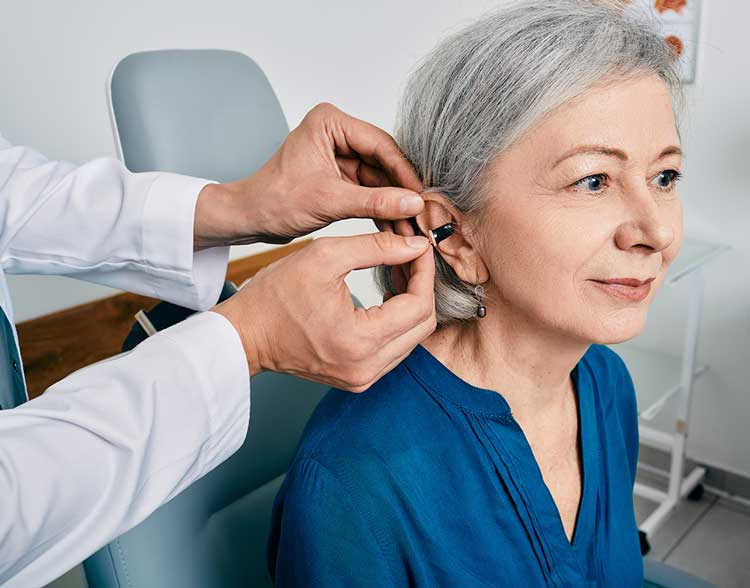Where to Buy Hearing Aids
Last updated November 2024

If you decide to buy a hearing aid, be wary: Because of the “scientific” nature of the purchase, consumers are often vulnerable to misinformation and bad deals.
An AARP study conducted in Florida revealed many shoddy sales practices by having consumers make 169 visits to 23 different hearing-aid dispensers for hearing tests. The study revealed that half of the dispensers failed to follow the state’s minimum hearing evaluation standards before recommending a hearing aid. Of the consumers who had not visited a physician prior to their appointment, only 14 percent were advised to see one before purchasing an aid, despite federal law requiring that they receive such advice. In many instances, sellers recommended hearing aids for people who did not need them; some dispensers recommended aids to as many as 90 percent of those who got hearing tests.
The AARP Florida study also found many deceptive sales statements, most commonly claiming that a hearing aid would help slow down hearing loss or ear damage. This is untrue: Hearing aids can only make you hear better; they have no impact on your natural hearing capacity and can’t prevent further loss.
In our own surveys, hearing-aid buyers for the most part rated sellers favorably. But the ratings and comments we received sometimes echoed the problems cited in the AARP study.
Some device manufacturers also use shady selling practices. While the FDA requires packaging for approved models to clearly include “OTC” and “hearing aid,” some companies of approved and non-approved products are using statements such as “FDA Registered” or “FDA Certified.” There is no such thing.
For advice you can trust, our Ratings Tables show how area hearing specialists were rated by local consumers. We primarily surveyed Consumers’ Checkbook subscribers but also invited other randomly selected consumers to participate. Our Ratings Tables list the businesses that received 10 or more survey responses.
We asked consumers to rate hearing-aid dispensers “inferior,” “adequate,” or “superior” on questions such as “advice on choice and use of products,” “reliability (standing behind products and delivering on time),” and “overall quality.” Our Ratings Tables report the percent of each company’s surveyed customers who rated it “superior” on each question. Click here for more info on our customer survey and other methods.
You can make your own judgments about the quality of advice provided by staff of various companies. Do they seem interested in you? Do they ask detailed questions about problems your hearing loss causes and when you would most benefit from hearing aids? Do they thoroughly explain the testing process and their diagnosis? Do they present several options? Do they provide easy-to-understand explanations for any recommendations they make? Are important choices, such as buying one aid versus two, discussed in ways you can understand?
Review professionals’ training and competence. Be sure they have credentials. An audiologist should hold a doctorate (Au.D., Sc.D., or Ph.D.), and/or have a Certificate of Clinical Competence in Audiology from the American Speech-Language-Hearing Association. Ask to work with a hearing instrument specialist who is board certified in hearing instrument sciences.
Check the facilities. The room in which a hearing test is administered needs to be quiet. Ask whether the center uses a sound-treated room (good) or professionally installed sound booth (better).
Finally, make sure you can get repairs done easily via a walk-in service.


